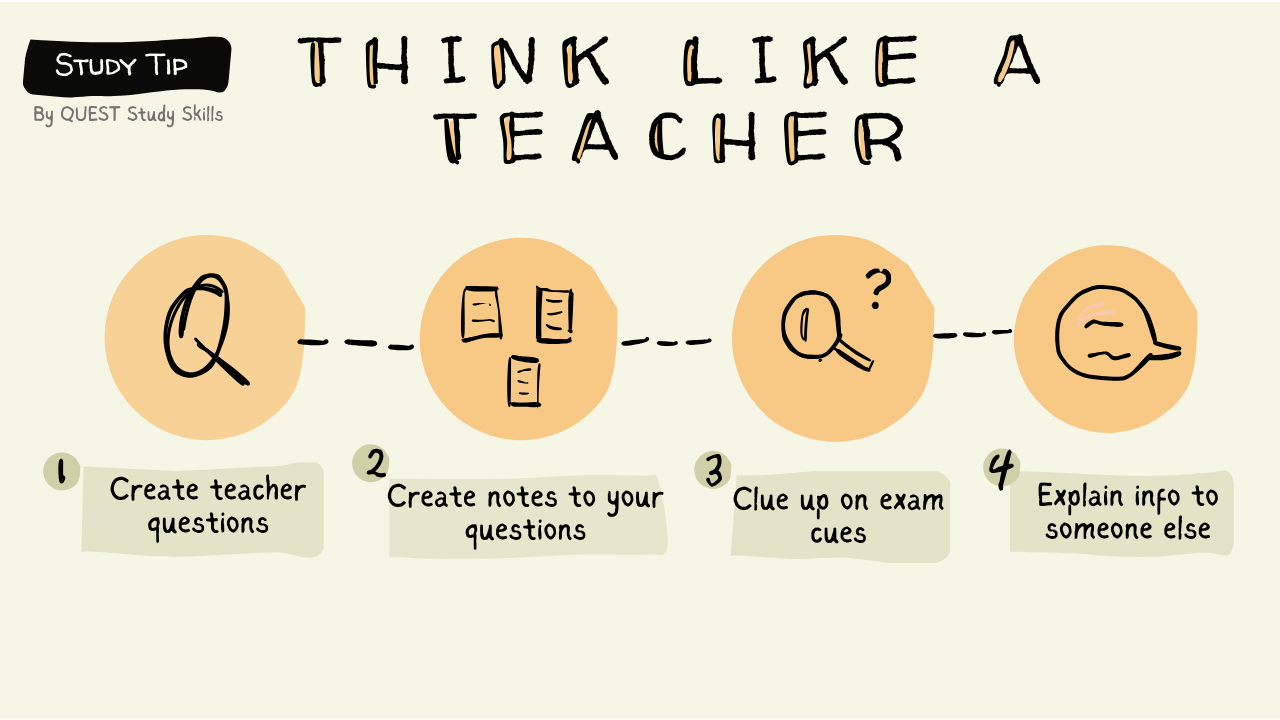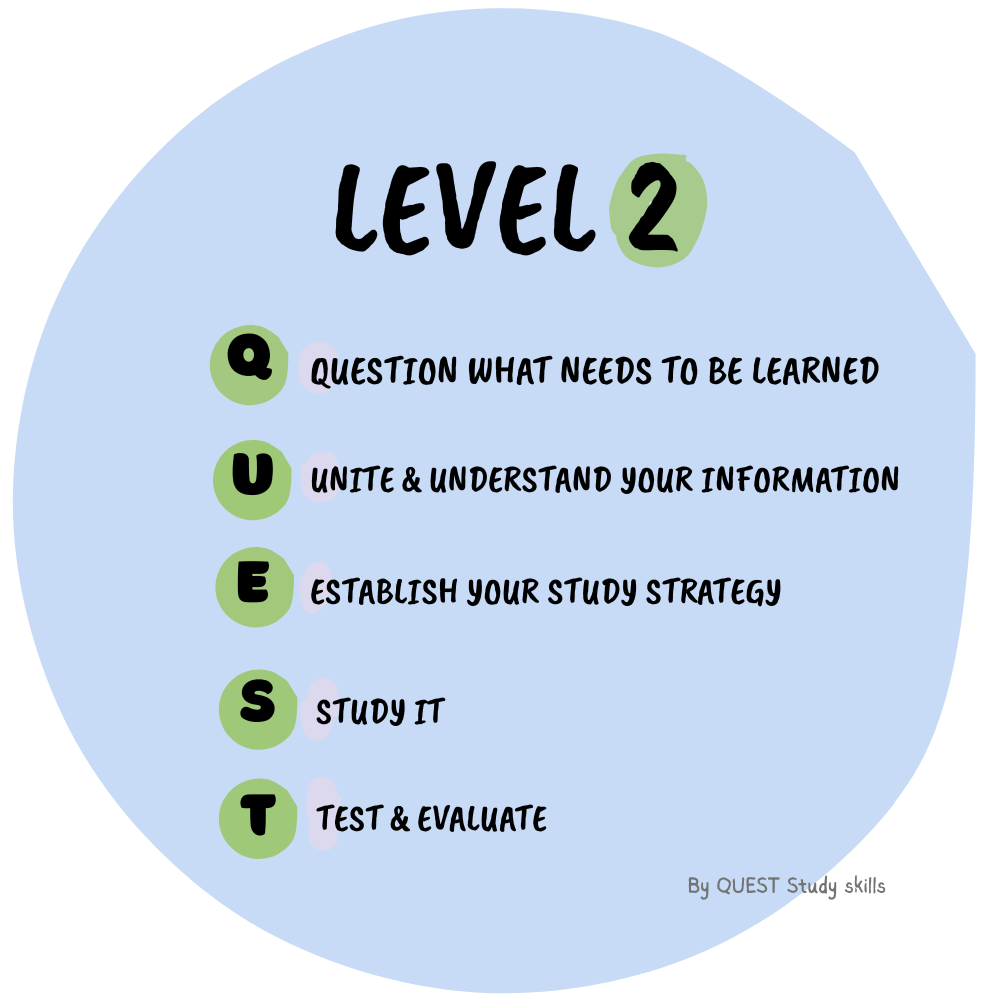How to predict exam questions by thinking like a teacher

If you’ve ever felt unsure about what to study or how much is enough, this is totally normal. Many students get stuck re-reading notes, highlighting things they don’t quite understand, or not knowing if it's important. The stress of not knowing what will be in the exam and if you missed something is beyond comprehension. And even after all that effort and stress, exam questions suddenly surprise us when we get to the exam. urgh!
It’s frustrating. And you’ve put in all that time!
What if there was a smarter, more confident way to revise? A way to actually predict more accurately what might be asked and feel more prepared to tackle it in the exam?
You can. Well, at least a little better. It starts by stepping outside how you usually would think.
Study like a student, but think like a teacher
Sounds really bizarre, but here's why it's a good tactic.
Why this works
Teachers don’t just know the content; they know how to ask about it. When you study with that mindset, you start to:
- Understand the material from different angles
- Anticipate what’s important (and likely to be tested)
- Build your own knowledge instead of just memorising
It’s one of the most powerful ways to turn study time into learning time, especially if you’re not sure where to start.
Turn questions into your secret study weapon
Sounds ridiculous, but it's an excellent way to really and truly understand information - and predict exam questions!
Here's how to do it:
1. Create teacher-style questions
Pick a topic you’re reviewing. Now ask yourself:
“If I had to test someone on this, what would I ask?”
This forces your brain to scan the topic, notice patterns, and think critically.
Try writing 3–5 potential test questions as you go. You’ll notice the topic becomes less intimidating and much easier to understand.
Example:
If you're studying climate change, don’t just read your notes, write questions like:
- “What are the key causes of global warming?”
- “Why is methane more potent than carbon dioxide?”
- “How could rising sea levels affect Australia?”
2. Build your notes around those questions
Instead of endless dot points, try turning your study notes into answers to the questions you just created.
You could even use a simple format like:
Q: What is the greenhouse effect?
A: It’s the process where certain gases trap heat in the atmosphere...
This helps you see what you really know and what you don’t.
3. Guess what your teacher would test
You don’t have to be psychic. Just pay attention to:
- What your teacher repeats or emphasises
- Topics they’ve set as homework or group tasks
- What they get excited or passionate about
These are all clues. If something stood out in class, there’s a good chance it could appear on a test.
4. Raise your standards (a little)
Ask yourself, “Could I explain this to someone else?”
If the answer is no, then you probably don’t know it well yet. A hint for a bit of improvement.
Use this chance to go deeper. Look up one more video. Read a related article. Draw a diagram.
You don’t need to become a genius, just more confident. The more you engage, the more confident you’ll become for the test.
Bonus: Use Bloom’s question ladder
This is where things get even more powerful. Bloom’s Taxonomy is a framework teachers use to design questions that test different levels of thinking.
Let’s break it down in student-friendly terms:
| Question Type | Example Question | What it does |
| Remember | “What is photosynthesis?” | Tests basic facts |
| Understand | “Why do plants need sunlight?” | Checks your comprehension |
| Apply | “How would you grow plants in low light?” | Makes you use the knowledge |
| Analyse | “What are the parts of the process?” | Breaks it into steps |
| Evaluate | “Is hydroponic farming a better alternative?” | Weighs pros and cons |
| Create | “Design an experiment to test plant growth rates” | Encourages original thinking |
You don’t need to use every level all the time; just try asking different types of questions as you study.
It makes your brain work harder in the best possible way.
Start predicting exam questions
Most students think they need more time to study. But often, what they really need is better questions.
When you stop trying to memorise everything and start asking questions like a teacher, your study becomes:
- More focused
- More engaging
- And way more effective
Try it out! And see how you go in the next test :)
👇While you're here...
Want to join the early Access list to the Mini Planning Course?
Stay connected with news and updates!
Join our mailing list to receive the latest news and updates from our team.
Don't worry, your information will not be shared.
We hate SPAM. We will never sell your information, for any reason.

